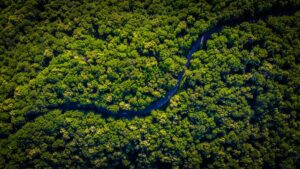A 70% decrease in the world’s wildlife since 1970 was reported this week. Research into animal populations revealed how numbers have plummeted due to human-led behaviours. Revelations such as these are heartbreaking for humanity for we navigate the emotions of loss and guilt while looking for villains to blame.
The LPI condemns the loss of wildlife to common practices of deforestation, consumption beyond limits and pollution on an industrial scale. The Living Planet Index is conducted by a collaboration between the WWF and Zoological Society of London (ZSL). Two years ago the biennial Living Planet Report showed that the figure stood at 68 percent and in 2019 it was at 60 percent.
An extract from the report outlines the delicate tipping point between nature’s decline and climate change. The loss of biodiversity, according to the World Health Organization, has a direct impact on human health. Our ecosystems are unable to function in symbiosis with human needs, which affects livelihoods, economic income, and displacement of people that may result in further political antagonism.
The report confirms that the most dramatic decrease in average population size was in Latin America, the Caribbean and the vital Amazon region. This area saw a 94 percent drop in 48 years. Africa had the second largest fall at 66 percent, followed by Asia and the Pacific at 55 percent, and North America at 20 percent. The least amount of population decrease was seen in Europe and Central Asia with 18 percent.
In a recent statement, the chief executive at WWF-UK Tanya Steele drove home to audiences the consequences of wildlife decrease in the context of the Amazon rainforest. Disruption to the harmonious relationship between vital forestry and the increasingly vulnerable wildlife is dissolving the Amazon’s ability to “act as one of our greatest allies in the fight against climate change.”
Statistics confirm that nations that contribute the least amount of emissions feel the negative immediate effects of climate change on their natural habitats and species first. Populations are grappling with volatile food systems due to over-fishing and land removal. Those nations who are able to turn a blind eye concurrently will future be forced to reconcile with similar uncertainty in the near future.
To quote political activist and writer Angela Y. Davis “If they come for me in the morning, they will come for you in the night.” Although some of these issues don’t impose on our day-to-day lives, if we continue to ignore social issues such as this prevalent decrease of animals and nature on earth, there will come a day that it is our livelihoods at stake.
Positive change-making, however, is being done, and the 2022 Living Planet report proposes a return to indigenous leadership in conservation and a reframing of global responsibility to a nature-positive society. While implementing persistent conservation policies will help us urgently preserve what wildlife remains.














